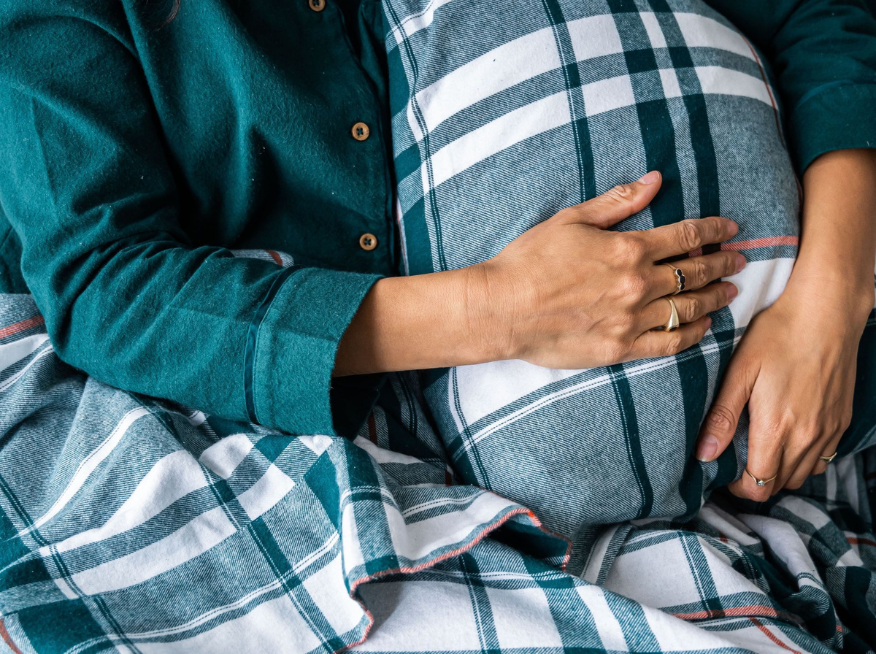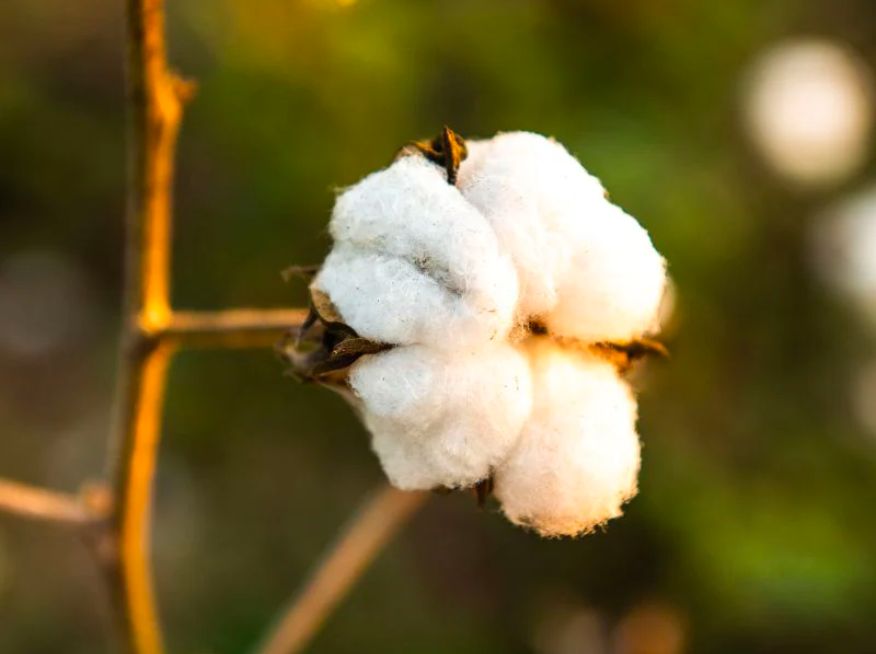


By Vinita Baravkar

When buying new sheets, the goal is to look for products that will guarantee good quality and last for years to come.
One of the phrases you might often hear as a key metric of bed sheet quality is "thread count".
In recent years, thread count has become a buzzword in bedding and sleepwear circles.
But despite its widespread popularity, a high thread count doesn’t always translate to the promise of a better bed sheet.
By the end of this article, you’ll know what thread count really means, whether it matters, and which thread count is best for the bed sheet fabric you’re looking for.
Let's get started.

The concept of thread count is relatively simple.
In short, thread count is the number of threads per square inch of fabric.
So let's say you have one square inch of a cotton bedsheet.
If the number of threads running horizontally (aka warp) is 200, and the number of threads running vertically (aka weft) is 300, then the thread count of that sheet is 200 + 300 = 500.
Similarly, 100 horizontal threads woven with 100 vertical threads would produce a thread count of 200.
In short, thread count indicates how tightly woven the fabric is. The more threads per square inch of fabric, the higher the thread count, and the more tightly woven it is.
But a higher thread count doesn't always equate to a higher quality of fabric.
Here's why.

Thread count is just one of the many factors that impact the quality of your sheets.
However, it’s not necessarily true that the higher the thread count, the better the sheet.
A higher thread count implies finer yarns.
But in the past few decades, manufacturers and fabric retailers across the industry have come up with clever gimmicks to manipulate thread count to their own advantage.
For example, while searching for bed sheets on the market, you'll often find bed sheets with thread counts as high as 1,000 or 1,500.
Yet such a high thread count is impossible to achieve.
Instead, Consumer Reports explains, “Manufacturers use thinner strands of fabric [known as plies] twisted together as if they were one. Then they double, triple, or even quadruple the thread count to make the number more attractive to the consumer.”
By using two-ply or multi-ply, manufacturers double the thread count using poor-quality threads.
A report by The Sydney Morning Herald found three popular Australian brands falsely advertising cotton thread counts 3x higher than the original thread count. They tested bed linen products from brands like Polo Australia, Accessorize, and Fresh Cotton — each of them marketed to have a thread count of 1000 or 1500. However, the test results found out the Accessorize sheets had a real thread count below 300.
In this way, thread count is often used as another marketing tactic by companies to sell low-grade sheets disguised as quality ones, all while keeping their production costs down and hiking up the price.
The only time thread count truly matters is when the sheets are made of 100% cotton with single-ply weaves. Single-ply cotton is made with finer yarns of higher quality materials such as organic cotton, Egyptian cotton or Pima cotton. These are stronger, more comfortable, and much more durable than double or multi-ply yarns.

In some cases, depending on the fabric, a higher thread count might be the reason for a soft, buttery feel to the sheets.
The idea is that higher thread count is the result of finer yarns — which means more fine yarns can fit in per square inch.
This is only true for certain fabrics like cotton.
And it's only applicable when the thread count is within a reasonable range between 400-600.
According to Business Insider, many clever marketers claim double or triple their actual thread count by using low-grade cotton and creating double or multi-ply threads.
But don't be fooled by their numbers — it doesn’t mean you’re getting sheets that are any softer or stronger.
In fact, it's quite the opposite. You end up with sheets that turn out to be coarse, uncomfortable and of a cheaper quality.
Besides, many companies add extra toxic chemicals at the finishing stage to artificially soften the fabric.
To determine the softness of sheets, look for a more important factor — the quality of yarn or fibre.
In fact, high-quality fibres with lower thread count will feel softer and more wash-friendly than lower-quality fibres with a higher thread count.
This is true for materials like organic linen where more thread density makes the fabric heavy and less breathable. In such cases, a lower thread count of 80–150 is the best option.

The truth is, there isn't really a “best” thread count for sheets.
Depending on your budget and sleeping style, a general rule of thumb is to aim for a thread count between 300 and 500.
Be wary of high thread count numbers like 800 and above.
Most sheets above the 800 thread count threshold are almost always double-ply. Double ply sheets are not as robust and durable. Plus, this is where manufacturers apply marketing gimmicks and blend multiple low-quality inferior threads to artificially increase thread count.
Besides, double-ply sheets are heavier and less breathable — they’re not ideal if your priority is softness and comfort.
If you're searching for cotton bed sheets, look for single-ply organic cotton with a thread count of 300-500.
Single-ply sheets have a thread count of up to 600. They have a soft texture and cooling effect which helps regulate your temperature during summer months.
So if thread count isn't the be-all-end-all of bed sheet quality, what should you look for instead?
Fortunately, other deciding factors come into play. Arguably, these are even more important than thread count when you're buying the bed sheet of your dreams.
Here are a few factors to consider before you swipe your card to make the purchase:
Ply is the number of fibres twisted together to form a single thread. It's an important factor for cotton.
When it comes to ply, the lesser the number the better the thread quality.
For example, fabrics with two-ply or multi-ply yarns are thicker, heavier, coarser and just less durable.
If you're looking for the best bed sheets, go for ones made with single-ply cotton. These are not just soft and breathable but will last you for years to come.
Another relevant deciding factor when buying cotton bed sheets is the length of the cotton fibres — otherwise known as "staple". It has a huge impact on how your cotton sheets feel and perform.
There are two types of cotton available in the market — short staple and long staple.
As the name suggests, short-staple cotton has fibres of shorter length. It's a lower quality cotton, hence cheaper.
In bedding made with short-staple cotton, you'll often find exposed fibre ends on the fabric surface. This lends a coarseness to the fabric and makes it prone to bobbling — which degrades the fabric over time.
On the contrary, long-staple cotton is made with fibres of longer lengths. This results in a fabric with stronger threads and no loose exposed ends.
Long-staple cotton fabric is luxuriously soft, smooth, breathable, comfortable and durable — all the qualities which make it perfect for luxury bedding.
In fact, high-quality long-staple cotton sheets with a low thread count (around 200-300) are much better than short-staple cotton sheets with a high thread count.
Quality trumps quantity, always.
Another important factor is to consider the type of fabric and fabric content.
Sheets made with polyester fibres or a polyester/cotton blend are very thin and of poorer quality. But due to the thinness of their yarns, the manufacturers can claim a higher thread count. Naturally, the final fabric is weaker and much less durable than pure, organic cotton.
Some fabrics like linen and silk are of a different texture altogether. Hence, they cannot be compared with cotton using the metric of thread count.
Ultimately, it depends on what kind of sleeper you are.
For example, an organic percale sheet is perfect if you're looking for cooling sheets. Whereas a cosy sateen sheet works for every season, all year round. And if you want to bundle up in the cold weather, go for organic flannelette or jersey sheets.
Linen is perfect if you're looking for a sheet that feels comfy and breathable.
For more information on the best bed sheets for your sleep type, go here.
A fabric's weave affects the way it looks, feels and how long it will last.
Different types of weaves create fabrics with varying qualities.
The most common weaves found today are plain weave, percale and sateen.
While no one type of weave is best, understanding the different options can help you make an educated guess when buying new sheets.
Plain weave: A traditional 1:1 plain weave method is used to make combed cotton fabric. In this method, short cotton fibres are removed by combing, leaving only long fibres which make the fabric strong and durable.
Percale: Percale is made with high-quality weave material with a thread count of 225 or more. Percale sheets are made of cool, breathable cotton. Due to its soft, crisp feel, it's a great choice for hot sleepers. Bhumi's organic percale sheets have a tight one-over-one-under weave for a smooth structured experience. This type of weave increases the airflow and enhances percale’s natural cooling properties.
Sateen: Sateen is a smooth silky fabric has a luxurious feel. Bhumi's organic sateen sheets are made with a one-over-one-under weave. It lends a unique soft hand feel, making it breathable and perfect for all seasons. Owing to its buttery soft texture, the sheets are also wrinkle-free.
Most manufacturers treat their sheets with chemicals such as chlorine, silicon and formaldehyde to keep them from shrinking and wrinkling.
Some even treat their sheets with alkalis for extra sheen.
There are very few companies that offer pure-finish sheets — where no chemicals were used during manufacturing or any that were, have been carefully removed.
These are the companies you should buy your sheets from.
Yes, you might have a harder time keeping these sheets wrinkle-free (pure cotton wrinkles gradually with time), but it'll be worth it if you want to keep your family safe from toxic chemicals and allergies.
Once the fabric is woven, various dyes and patterns are applied to it.
This step makes a big difference.
Many companies add toxic synthetic dyes which are riddled with chemicals. This causes the sheets to feel stiff until you've washed them a few times. Plus, they are harmful to the health of your family, especially your little ones.
Instead, opt for companies that use organic natural dyes that are non-toxic and good for your health.
Natural dyes also help maintain the quality and longevity of your sheets.
Thread count is to bed sheets what carats are to diamonds - they’re certainly an important factor in determining quality but not the only one.
So the next time you’re buying a new set of sheets, make sure to look for other things like thread length, weave, quality of fabric, type of chemicals and dyes used before making a decision.
When it comes to bed sheets, Bhumi's quest is for the highest quality — which far outweighs vanity metrics like thread count number.
Made with GOTS-certified organic long-staple cotton of superior quality, the sheets are soft, luxurious and last for years to come. With no toxic chemicals used in the production process and use of plant-based dyes, Bhumi ensures an ethical production and a safe, skin-friendly fabric for your family. Explore their range here.

RELATED ARTICLES

